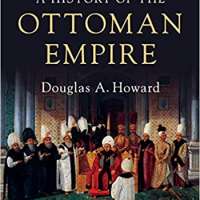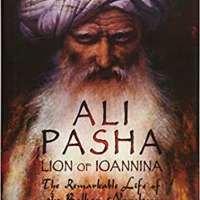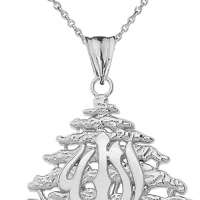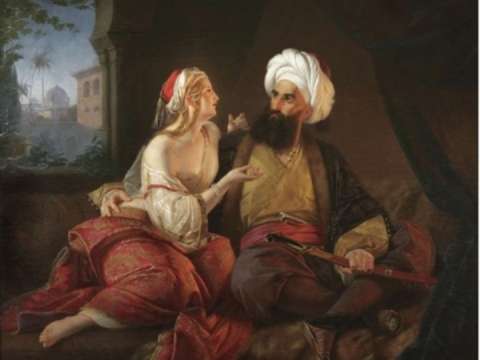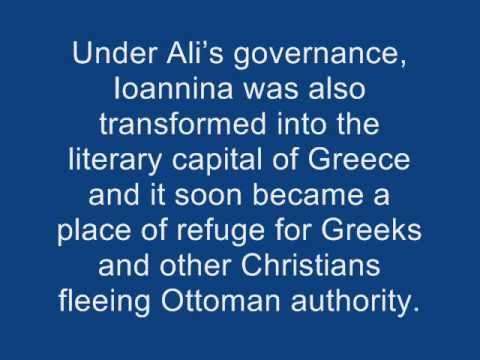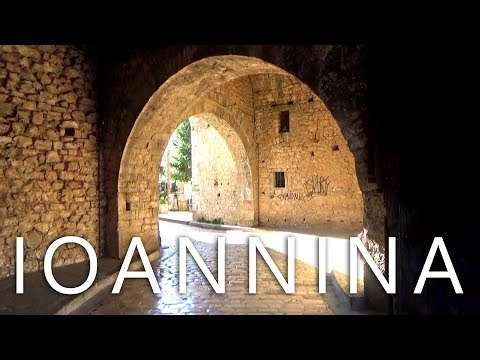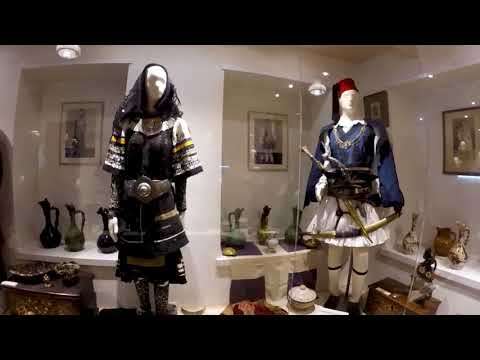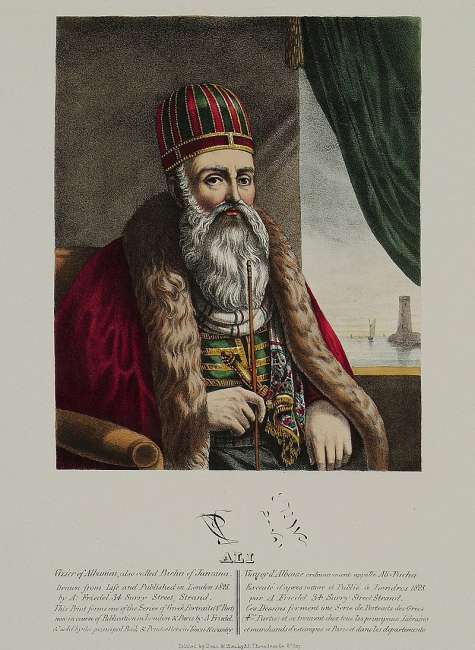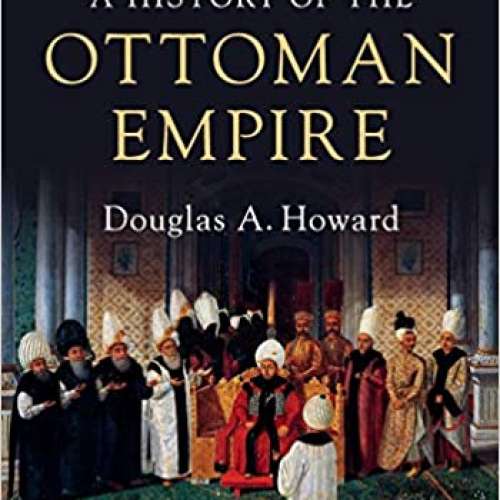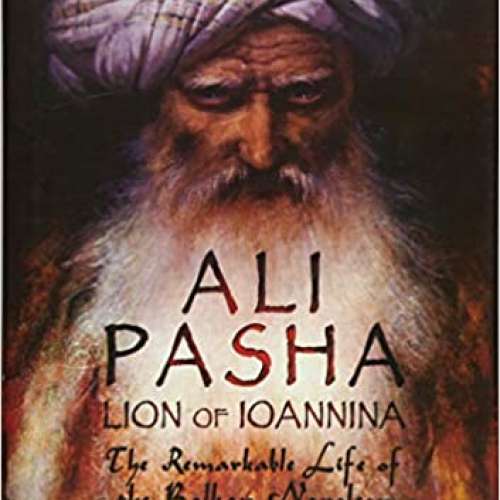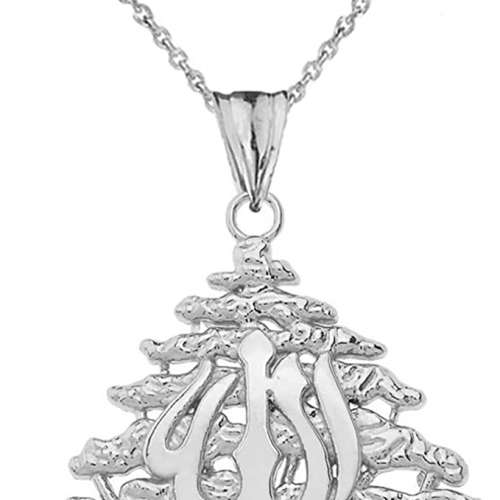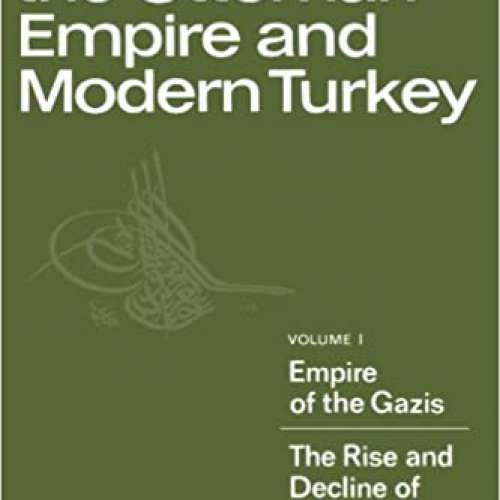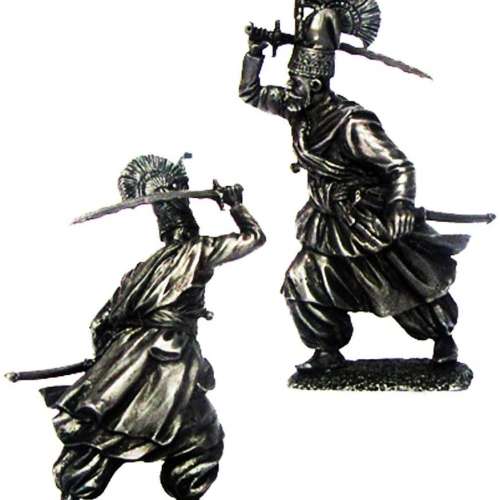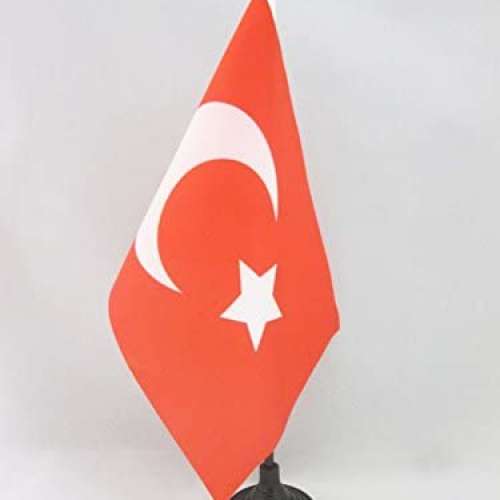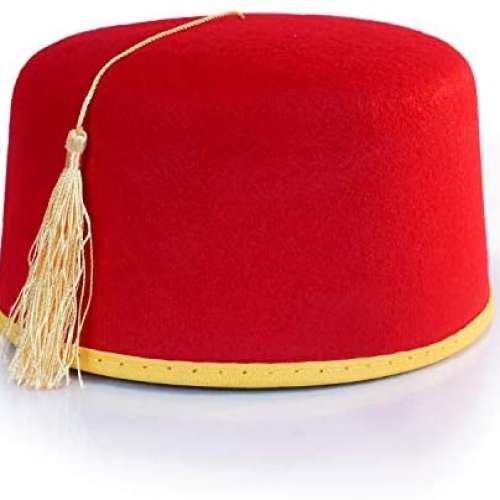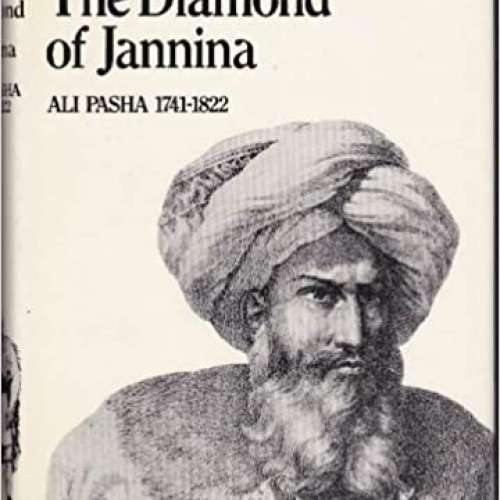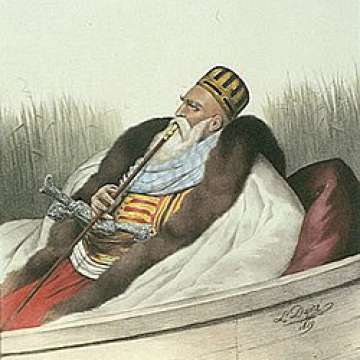

Ali Pasha of Ioannina (1740-1822)
Ali Pasha variously referred to as the Lion of Yannina, was an Ottoman Albanian ruler who served as pasha of a large part of western Rumelia, the Ottoman Empire's European territories, which was referred to as the Pashalik of Yanina. His court was in Ioannina, and the territory he governed incorporated most of Epirus and the western parts of Thessaly and Greek Macedonia. Ali had three sons: Muhtar Pasha, who served in the 1809 war against the Russians, Veli Pasha, who became Pasha of the Morea Eyalet and Salih Pasha, governor of Vlore.
Ali first appears in historical accounts as the leader of a band of brigands who became involved in many confrontations with Ottoman state officials in Albania and Epirus. He joined the administrative-military apparatus of the Ottoman Empire, holding various posts until 1788 when he was appointed pasha, ruler of the sanjak of Ioannina. His diplomatic and administrative skills, his interest in modernist ideas and concepts, his popular piety, his religious neutrality, his suppression of banditry, his vengefulness and harshness in imposing law and order, and his looting practices towards persons and communities in order to increase his proceeds caused both the admiration and the criticism of his contemporaries, as well as an ongoing controversy among historians regarding his personality. Finally falling afoul of the Ottoman central government, Ali Pasha was declared a rebel in 1820 and was killed in 1822 at the age of 81 or 82. In Western literature, Ali Pasha became the personification of an "oriental despot".
Name
His name in the local languages were: Albanian: Ali Pashe Tepelena; Aromanian: Ali Pashelu; Greek: Ali Pasas Tepelenlis or Ali Pasas ton Ioanninon Ali Pasha of Ioannina; and Turkish: Tepedelenli Ali Pasa.
Background and early years
At some point in the 19th century, Ali's family was attributed with a legendary ancestry; according to this claim, Ali's family supposedly descended from a Mevlevi dervish named Nazif who migrated from Konya to Tepelene through Kutahya. However, this tradition is unfounded, and Ali's family, in all likelihood, were of local origins. They had achieved some stature by the 17th century.
Ali's grandfather Muhtar Bey and great-grandfather were both bandit chieftains. His grandfather had died during the 1716 siege of Corfu. His father, Veli bey, was a local ruler of Tepelena.
Ali himself was born in Tepelena or in the adjacent village of Becisht. According to George Bowen, Ali Pasha was part of the Lab tribe; as this tribe was in disrepute among the other Albanians for their poverty and predatory habits, he thought it proper to call himself after Tepelena, a town of the Tosks; no one dared to dispute this until after his death. Ali's father was involved in a rivalry with his father's cousin Islam Bey, who was also a local ruler. Islam Bey was appointed mutasarrıf of Delvine in 1752, but Ali's father managed to kill him and was allowed to succeed his cousin as mutasarrıf in 1762. However, his father was assassinated shortly after when Ali was nine or ten, and he was brought up by his mother, Chamko or Hanko, who originally hailed from Konitsa.
In Ali's early years, he distinguished himself as a bandit. He affiliated himself with the Bektashi sect. The family lost much of its political and material status following the murder of his father. In 1758, his mother, Hanko, reportedly a woman of extraordinary character, thereupon herself formed and led a brigand band, and studied to inspire the boy with her own fierce and indomitable temper, with a view to revenge and the recovery of their lost wealth. According to Byron: "Ali inherited 6 dram and a musket after the death of his father. Ali collected a few followers from among the retainers of his father, made himself master, first of one village, then of another, amassed money, increased his power, and at last found himself at the head of a considerable body of Albanians".
In 1784 he seized Delvina, with the sultan's approval. Ali was appointed mutasarrıf of Ioanninna at the end of 1784 or beginning of 1785, but was soon dismissed. His rise through Ottoman ranks continued with his appointment as lieutenant to the Pasha of Rumelia. In 1787 he was awarded the pashaluk of Trikala in reward for his services at Banat during the Austro-Turkish War 1787–1791. In 1788 he seized control of Ioannina and enlisted most of the Brigands under his own banner. Ioannina would be his power base for the next 33 years. He took advantage of a weak Ottoman government to expand his territory still further until he gained control of most of Albania, western Greece and the Peloponnese.
During war-time, Ali Pasha could assemble an army of 50,000 men in a matter of two to three days and could double that number in two to three weeks. Leading these armed forces was the Supreme Council. The Commander-in-chief was the founder and financier, Ali Pasha. Council members included Muftar Pasha, Veli Pasha, Celaleddin Bey, Abdullah Pashe Taushani and a number of his trusted men like Hasan Dervishi, Halil Patrona, Omar Vrioni, Meço Bono, Ago Myhyrdari, Thanasis Vagias, Veli Gega murdered by Antonis Katsantonis, and Tahir Abazi.
Ali Pasha as ruler
As Pasha of Ioannina, he slowly laid the foundations for the creation of an almost independent state, which included a large part of Greece and Albania. During his rule, the town of Ioannina developed into a major educational, cultural, political and economic hub. In order to achieve his goals, he allied with all religious and ethnic groups in his territory. At the same time, he did not hesitate to fiercely crush any opponent. As he also developed relations with European powers.
Ali's policy as ruler of Ioannina was mostly governed by expediency; he operated as a semi-independent despot and pragmatically allied himself with whoever offered the most advantage at the time. In fact, it was Ali Pasha and his Albanian soldiers and mercenaries who subdued the independent Souli.
Ali Pasha wanted to establish in the Mediterranean a sea-power which would be a counterpart of that of the Dey of Algiers, Ahmed ben Ali. In order to gain a seaport on the Albanian coast, which was dominated by Venice, Ali Pasha formed an alliance with Napoleon I of France, who had established François Pouqueville as his general consul in Ioannina, with the complete consent of the Ottoman Sultan Selim III.
After the Treaty of Tilsit, where Napoleon granted the Czar his plan to dismantle the Ottoman Empire, Ali Pasha switched sides and allied with Britain in 1807; a detailed account of his alliance with the British was written by Sir Richard Church. His actions were permitted by the Ottoman government in Constantinople. Ali Pasha was very cautious and displeased by the emergence of the new Ottoman Sultan Mahmud II in the year 1808.
Lord Byron visited Ali's court in Ioannina in 1809 and recorded the encounter in his work Childe Harold. He evidently had mixed feelings about the despot, noting the splendour of Ali Pasha's court and the Greek cultural revival that he had encouraged in Ioánnina, which Byron described as being "superior in wealth, refinement and learning" to any other Greek town.
In a letter to his mother, however, Byron deplored Ali's cruelty: "His Highness is a remorseless tyrant, guilty of the most horrible cruelties, very brave, so good a general that they call him the Mahometan Buonaparte ... but as barbarous as he is successful, roasting rebels, etc, etc.."
Different tales about his sexual proclivities emerged from western visitors to Pasha's court including Lord Byron, the Baron de Vaudoncourt , and Frederick North, Earl of Guildford. These documenters wrote that he kept a large harem of both women and men. Such accounts may reflect the Orientalist imagination of Europe and underplay the historical role of Pasha rather than telling us anything concrete about his sexuality.

Ali Pasha, according to one opinion, "was a cruel and faithless tyrant; still, he was not a Turk, but an Albanian; he was a rebel against the Sultan Mahmud II, and he was so far an indirect friend of the Sultan's enemies". Throughout his rule he is known to have maintained close relations and corresponded with famous leaders such as Husein Gradascevic, Ibrahim Bushati, Mehmet Ali Pasha and Ibrahim Pasha.
Though certainly no friend to the Greek Nationalists he had personally ordered the painful execution of the Klepht Katsantonis, his rule brought relative stability. It was only after his forceful deposition that the people of Greece objected to the rule of the Sultan Mahmud II and the newly appointed Hursid Pasha and thus began the Greek War of Independence.
Ali Pasha used Greek in his court, and over the gate of his castle in Yannina there was an inscription in Greek claiming his descent from King Pyrrhus of Epirus. It is reported that he conversed with foreigners in Greek.
A long epic poem known as the Alipashiad consisting of more than 10,000 lines is dedicated to the exploits of Ali Pasha. The Alipashiad was composed by Haxhi Shekreti, an Albanian Muslim from Delvino and was written entirely in Greek.
Impact on modern Greek Enlightenment
Although Ali Pasha's native language was Albanian he used Greek for all his courtly dealings since the population of the region of Epirus now mainly in northwestern Greece which he ruled was predominantly Greek speaking. As a consequence, a part of the local Greek population showed sympathy towards his rule. This also activated new educational opportunities, with businessmen of the Greek diaspora, subsidizing a number of new educational purposes. As historian Douglas Dakin notes:
[Ali's] colourful career belongs to Greek as well as to Turkish history. His court was Greek and had been the centre of a Greek renaissance.
Atrocities
In 1808, Mühürdar, a commanding Janissary of Ali Pasha, captured one of his most renowned opponents, the Greek klepht Katsantonis, who was executed in public by having his bones broken with a sledgehammer. One of Ali's notorious crimes was the mass murder of 17 or 18 without a legal indictment chosen young Greek girls of Ioannina. They were without a trial sentenced as adulteresses, tied up in sacks and drowned in Lake Pamvotis. Oral Aromanian tradition songs tells about the cruelty of Ali Pasha's troops.

In October 1798 Ali's troops attacked the coastal town of Preveza, which was defended by a small garrison of 280 French grenadiers and local Greeks. When the town was finally conquered, a major slaughter occurred against the local people as retaliation for their resistance. He also tortured the French and Greek prisoners of war before their execution. A French officer described the atrocities ordered by Ali Pasha and his cruel character:
The chamber where Mr. Tissot had been locked was facing to the place with the bloody remainders of the French and Greeks killed in Preveza. The officer witnessed the cruel death of several Prevezans whom Ali sacrificed to his rage, and the behavior of the Pasha during executions: one hundred times more cruel than Nero, Ali was viewing with sarcasm the torments of his victims. His bloody soul enjoyed with execrable pleasure his indescribable vengeance, and meditated still more atrocities.
Every French captive was given a razor with which he was forced to skin the severed heads of his compatriots. Those who refused were beaten on the head with clubs. After the heads were skinned, the masks were salted and put in cloth bags. When the operation was finished, the French were driven back into the hangar, and they were warned to prepare for death.
Soon after they brought the unfortunate Prevezans, whose hands had been tied behind their back by the Albanians. They piled them in large boats and drove to Salagora (a small island in the Gulf of Arta), where a legion of executioners was waiting. Ali made a hecatomb of these four hundred unfortunates. Their heads were carried in triumph and then offered in Ioannina, a spectacle worthy of his ferocity.
In the early nineteenth century his troops completed the destruction of the once prosperous cultural center of Moscopole, in modern southeastern Albania, and forced its Aromanian population to flee from the region.
Downfall
In 1819, Halet Efendi brought to the attention of Sultan Mahmud II issues conspicuously related to Ali Pasha; Halet Efendi accused Ali Pasha of grabbing power and influence in Ottoman Rumelia away from the Sublime Porte. In 1820, Ali Pasha, after long tensions with the Turkish Reforms, allegedly ordered the assassination of Gaskho Bey, a political opponent in Constantinople; Sultan Mahmud II, who sought to restore the authority of the Sublime Porte, took this as a major opportunity to move against Ali Pasha by ordering his immediate deposition.
Ali Pasha refused to resign his official post and put up a fierce resistance to the Sultan's troop movements as some 20,000 Turkish troops led by Hursid Pasha were fighting Ali Pasha's small but formidable army. Most of his followers abandoned him without fighting and fled, including Androutsos and his sons Veli and Muhtar, or else joined the Ottoman army. Among these were Omer Vrioni and Alexis Noutsos, who went unopposed to Ioannina, which was besieged in September 1820.

On December 4, 1820, Ali Pasha and the Souliotes formed an anti-Ottoman coalition, to which the Souliotes contributed 3,000 soldiers. Ali Pasha gained the support of the Souliotes mainly because he offered to allow the return of the Souliotes to their land, and partly by appeal to their perceived Albanian origin. Initially, the coalition was successful and managed to control most of the region, but when the Muslim Albanian troops of Ali Pasha were informed of the beginning of the Greek revolts in the Morea, it was terminated.
Ali's rebellion against the Sublime Porte increased the value of the Greek military element since their services were sought by the Porte as well. He is said to have contracted the services of the Klephts and Souliots in exile in the Ionian Islands as well as the armatoles under his command. However he feared that the Klephts might rout him before the arrival of the Ottoman Turks.
His separatist actions constitute a great example of the institutional corruption and dividing trends prevailing in the Ottoman Empire at the time. His effort to become an independent ruler finally caused the reaction of the Sublime Porte, which sent the army against him. After about two years of fighting, in January 1822, Ottoman forces had taken most of the fortifications of Ioannina except the fortified palace inside the kastro. Ali Pasha opened negotiations. Deceived with offers of a full pardon, he was persuaded to leave the fortress and settle in the Monastery of St Panteleimon on the island in Lake Pamvotis, previously taken by the Ottoman army during the siege. When asked to surrender for beheading, he famously proclaimed:
"My head ... will not be surrendered like the head of a slave," and kept fighting till the end. He was shot through the floor of his room and his head was cut off to be sent to the Sultan. Thus, Ali Pasha of Tepelena died in 1822.
Hursid Pasha, to whom it was presented on a large dish of silver plate, rose to receive it, bowed three times before it, and respectfully kissed the beard, expressing aloud his wish that he himself might deserve a similar end. To such an extent did the admiration with which Ali's bravery inspired these men to efface the memory of his crimes.
Ali Pasha was buried with full honors in a mausoleum next to the Fethiye Mosque, which still stands. Despite his brutal rule, villagers paid their last respect to Ali: "Never was seen greater mourning than that of the warlike Epirotes."
The former monastery in which Ali Pasha was killed is today a popular tourist attraction. The holes made by the bullets can still be seen, and the monastery has dedicated to him a museum, which includes a number of his personal possessions.
Religion
Ali Pasha was born into a Muslim family. Regardless, the struggle for power and the political turmoils within the empire required for him to support non-Muslim or heterodox priests, beliefs, and orders, and especially the Greek Orthodox population which formed the majority of the population in the region he ruled. One of the spiritual figures which influenced him was Saint Cosmas. Ali ordered and supervised the construction of a monastery dedicated to him near Berat. Ali Pasha maintain control over the Christian population but respected the monasteries and stayed on good terms with the upper clergy.
He strongly supported the Sufi orders, well-spread in Rumelia at the time. Ali was close to the dominant Sufi orders as the Naqshbandi, Halveti, Sâdîyye, or even Alevi. Specifically the famous Sufi shrines in Yanina and Parga were Naqshbandi. The order that was mostly supported by him was Bektashi and he is accepted today to have been a Bektashi follower, initiated by Baba Shemin of Fushë-Krujë. Through his patronage, Bektashism spread in Thessaly, Epirus, South Albania, and in Kruja. Ali's tomb headstone was capped by the crown taj of the Bektashi order. Nasibi Tahir Babai, a Bektashi saint, is regarded as one of three spiritual advisers of Ali Pasha.
Ali Pasha in literature
According to the Encyclopedia of Islam, in Western literature, Ali Pasha became the personification of an "oriental despot".
In early 19th century, Ali's personal balladeer, Haxhi Shekreti, composed the poem Alipashiad. The poem was written in Greek language, since the author considered it a more prestigious language in which to praise his master. Alipashiad bears the unusual feature of being written from the Muslim point of view of that time. He is the title character of the 1828 German singspiel Ali Pascha von Janina by Albert Lortzing.
In the novel The Count of Monte Cristo by Alexandre Dumas, père, Ali Pasha's downfall is revealed to have been brought about by French Army officer Fernand Mondego. Unaware of Mondego's collusion with the Sultan's forces, Pasha is described as having entrusted his wife, Kyra Vassiliki, and daughter, Haydee, to Mondego, who sells them into slavery. Mondego then personally murders Ali Pasha and returns to France with a fortune. The novel's protagonist, Edmond Dantes, subsequently locates Haydee, buys her freedom, and helps her avenge her parents by testifying at Mondego's court martial in Paris. Mondego, who is found guilty of "felony, treason, and dishonor", is abandoned by his wife and son and later commits suicide.
Alexandre Dumas, pere wrote a history, Ali Pacha, part of his eight-volume series Celebrated Crimes 1839–40.
Ali Pasha is also a major character in the 1854 Mor Jokai's Hungarian novel Janicsarok vegnapjai "The Last Days of the Janissaries", translated into English by R. Nisbet Bain, 1897, under the title The Lion of Janina.
Ali Pasha and Hursid Pasha are the main characters in Ismail Kadare's historic novel The Traitor's Niche original title Kamarja e turpit.
Ali Pasha provokes the bey Mustapha a fictional character in Patrick O'Brian's The Ionian Mission to come out fighting on his own account, when the British navy is in the area seeking an ally to push the French off Corfu. The Turkish expert for the British Navy visits him to learn this tangled story, which puts Captain Aubrey out to sea to take Mustapha in battle.
Many of the conflicting versions about the origin of the "Spoonmaker's Diamond", a major treasure of the Topkapi Palace in Istanbul, link it with Ali Pasha – though their historical authenticity is doubtful.
Loretta Chase's 1992 historical romance novel The Lion's Daughter includes Ali Pasha and a possible revolt against him by a cousin, Ismal.
More facts
Ali Pasha, Lion of Ioannina: The Remarkable Life of the Balkan Napoleon
History of the Ottoman Empire and Modern Turkey: Volume 1
A History of the Ottoman Empire
Ali Pasha and Mrs Frosyni (1959)
The Lake of Sighs (1959)




